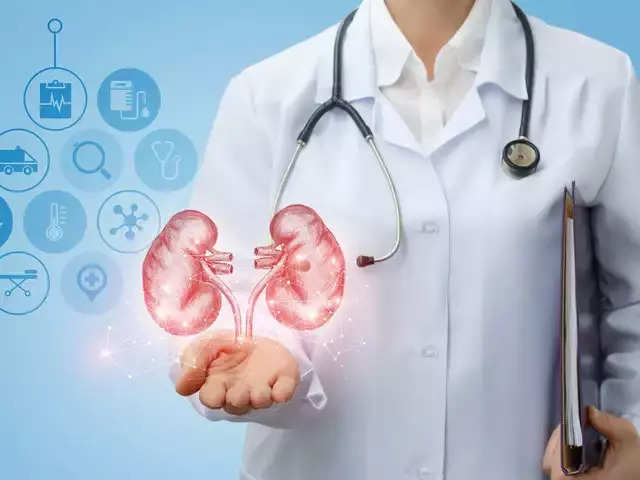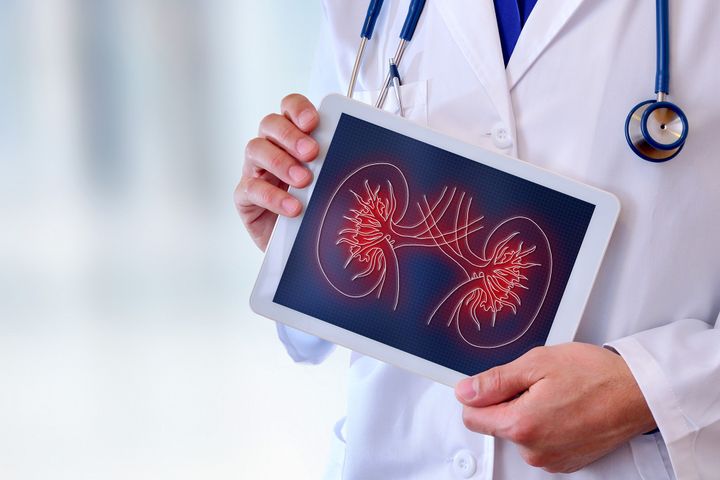Best Kidney Disease Treatments
Jan 11, 2024 By Marie White
When the kidneys are damaged, these functions may be impaired, leading to serious health consequences. Several underlying conditions, such as diabetes, high blood pressure, and kidney infections, can cause kidney disease. It can also be caused by certain medications, such as nonsteroidal anti-inflammatory drugs (NSAIDs) and certain antibiotics. Kidney disease is classified into five stages based on the level of kidney function and the presence of any symptoms.
Treatment for kidney disease is important to slow kidney function decline and reduce the risk of complications. It is important to follow your healthcare provider's treatment plan and adhere to any recommended lifestyle changes to manage kidney disease and protect overall health. Regular check-ups and tests can help monitor the condition's progression and make any necessary adjustments to treatment. It is important to speak with a healthcare provider about any concerns or questions about kidney disease and its treatment. Here are a few treatments that can help slow the decline of kidney function:
Medications To Control Underlying Conditions
Kidney disease is often caused by underlying conditions such as diabetes and high blood pressure. Medications to control these conditions can help slow the decline of kidney function.
Medications To Manage Symptoms
Medications can be used to manage symptoms of kidney disease, such as high blood pressure and anemia.
Dialysis
Dialysis is a medical treatment that uses a machine to filter waste and excess fluids from the blood. It is often necessary for people with kidney failure, also known as an end-stage renal disease (ESRD). There are two types of dialysis: hemodialysis and peritoneal dialysis. Hemodialysis uses a machine to clean the blood outside of the body, while peritoneal dialysis uses the lining of the abdomen to filter the blood. Dialysis can help slow kidney function decline and improve quality of life.
Kidney Transplant
A kidney transplant can help improve kidney function and may be an option for some people with kidney disease.
Lifestyle Changes
Lifestyle changes, such as maintaining a healthy diet, getting regular exercise, and managing underlying health conditions, can help slow the decline of kidney function and improve overall health. It is important to follow your healthcare provider's treatment plan and adhere to any recommended lifestyle changes to manage kidney disease and protect overall health. Treatment for kidney disease is important to slow kidney function decline and reduce the risk of complications. Regular check-ups with a healthcare provider and tests to check for kidney function are important for monitoring the condition's progression and making any necessary adjustments to treatment.

Additional Considerations
Here are a few additional considerations for kidney disease treatments:
- The most appropriate treatment for kidney disease will depend on the stage of the condition and the presence of any underlying conditions or symptoms.
- Early diagnosis and treatment of kidney disease can help slow the condition's progression and reduce the risk of complications.
- It is important to seek medical attention if you are experiencing any symptoms of kidney disease, as timely treatment can help slow the condition's progression.
- In addition to medical treatments, supportive care, such as physical therapy and counseling, may help manage kidney disease and improve quality of life.
- It is important to follow your healthcare provider's treatment plan and adhere to any recommended lifestyle changes to manage kidney disease and protect overall health.
- Regular check-ups with a healthcare provider and tests to check for kidney function are important for monitoring the condition's progression and making any necessary adjustments to treatment.
- It is important to speak with a healthcare provider about any concerns or questions about kidney disease and its treatment.
- Kidney disease is a global health issue, with an estimated 10% of the world's population affected by the condition.
- In addition to medical treatments, self-management strategies can help manage kidney disease and improve quality of life. These may include setting goals, monitoring diet and fluid intake, and participating in physical activity.
- It is important to seek medical attention if you are experiencing any symptoms of kidney disease, as timely treatment can help slow the condition's progression.

In conclusion, kidney disease treatment is important to slow the decline of kidney function and reduce the risk of complications. Medications to control underlying conditions, medications to manage symptoms, dialysis, and kidney transplant are all treatments that can help slow kidney function decline. Lifestyle changes, such as maintaining a healthy diet and regular exercise, can help manage kidney disease and protect overall health. It is important to follow your healthcare provider's treatment plan and adhere to any recommended lifestyle changes to manage kidney disease and protect overall health. Regular check-ups and tests can help monitor the condition's progression and make any necessary adjustments to treatment.

Stress Unraveled: Its Far-Reaching Impact from Brain to Belly

An Overview of Heart Failure

How to Get Rid of Hives: 9 Natural Remedies You Must Try

Decoding Facial Care: How Often Is Ideal for Your Skin?

Best Practices for Storing Coconut Oil

Green Home - The Healing Power of Indoor Plants

Combatting Dermatoporosis: The Latest Advances in Skincare Treatments


